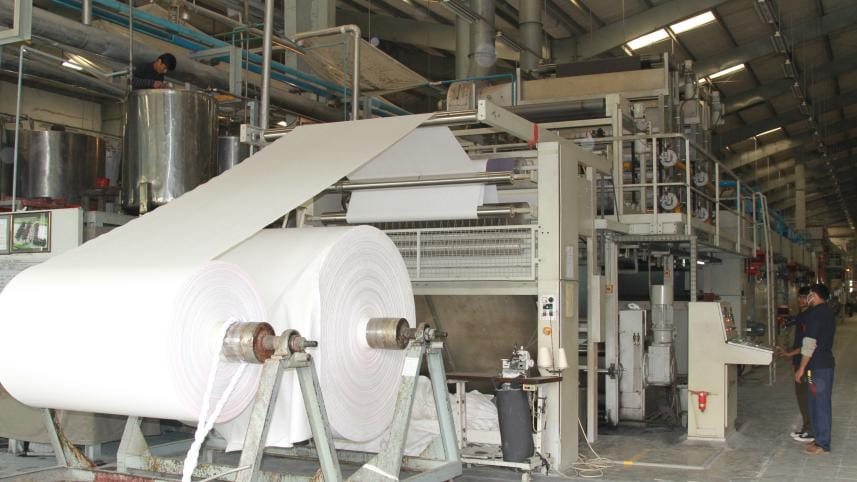Textile millers demand gas at previous rates

Textile millers yesterday demanded that the government re-fix gas prices at the previous rate as they have been unable to run their industrial units due to low pressure of gas despite the rates being doubled since February 2022.
The government increased gas prices after providing assurances that it would ensure adequate supply of gas to industrial units, but mills could only run at 40 percent capacity in January because of low pressure of gas.
The state-owned oil and gas supplier, Petrobangla, should either re-fix gas prices or ensure adequate supply of gas to industrial units, said Mohammad Ali Khokon, president of the Bangladesh Textile Mills Association (BTMA), during a press conference at the Pan Pacific Sonargaon Dhaka.
There has been virtually no supply of gas in areas across Naraynaganj over the past 15 days while mills are struggling to run at even minimum capacity in Chattogram, Savar, Ashulia, Araihazar and Gazipur due to the pressure of gas standing between 0 to 2 PSI.
Annoyed by the low pressure of gas, five millers informed Khokon in one day that they may be forced to sell their textile units as they are fearing big losses due to the non-operation of mills, the BTMA chief added.
The home textile sector is also losing its shine because of the gas crisis.
Bangladesh used to export $1.6 billion worth of home textiles, but the amount declined to $600 million in the last fiscal year as many mills could not operate at full capacity.
Due to the gas crisis, mills which used to produce 50 tonnes of yarn a day are now producing 20 tonnes.
The crisis is also affecting foreign currency earnings. For instance, if the government can supply $1 lakh worth of gas to textile millers, they are able to export goods worth $40 lakh.
Many international retailers and brands are also concerned about whether local millers can supply goods timely given that mills cannot run at full capacity.
If garments are made from imported fabrics and exported, the value addition amounts to 25 percent. If local fabrics are used, the percentage varies between 55 to 60 percent. However, if any shipment faces discount for any reason, 25 percent of the value addition is lost.
In 2023, no new capital machinery was imported while fresh investment in the sector was almost dry. However, there were significant imports of capital machinery in 2021 and 2022.
Currently, of the total orders in the textile sector, around 35 percent are for recycled yarn. But in Bangladesh some 15 billion kilogrammes of cotton waste is ruined, which is why the BTMA is working to utilise the resource.
Local spinning mills are producing 4,000 million kilogrammes of yarn a year and 20,000 textile mills are producing 9 billion metres of fabrics a year, Khokon said.
Khokon also spoke about the 18th edition of the Dhaka International Textile and Garment Machinery Exhibition, which is going to take place in the capital from February 1-4.
He said they were holding the exhibition as they are installing machineries that consumes less gas and electricity, such as hydrogen-run mills.
The Bangladesh Textile Mills Association (BTMA), Chan Chao International Company Ltd, and Yorkers Trade & Marketing Services Co Ltd are jointly organising the exhibition.
The five-day event will take place at the International Convention City Bashundhara in Dhaka.



 For all latest news, follow The Daily Star's Google News channel.
For all latest news, follow The Daily Star's Google News channel.
Comments